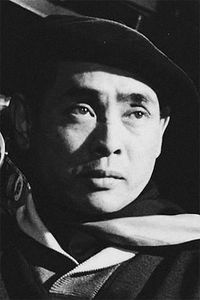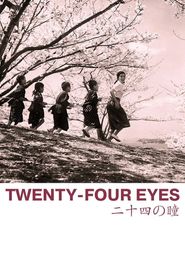Keisuke Kinoshita, a renowned Japanese writer and director, was born on December 5, 1912, in the city of Hamamatsu, located in the Shizuoka prefecture of Japan. This notable figure in the world of Japanese cinema was destined to leave an indelible mark on the industry. Kinoshita's impressive body of work includes the critically acclaimed films "Twenty-Four Eyes" (1954),"The Garden of Women" (1954),and the iconic "The Ballad of Narayama" (1958). Throughout his illustrious career, Kinoshita's dedication to his craft earned him a reputation as a master storyteller. Sadly, Kinoshita's life came to a close on December 30, 1998, in Tokyo, Japan, leaving behind a legacy that continues to inspire and influence filmmakers to this day.

Keisuke Kinoshita
Deceased · Born: Dec 5, 1912 · Died: Dec 30, 1998



















